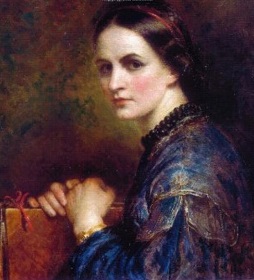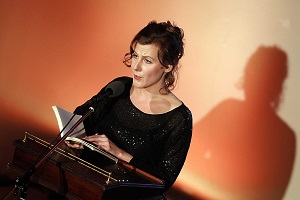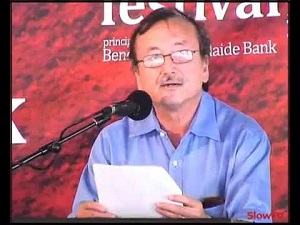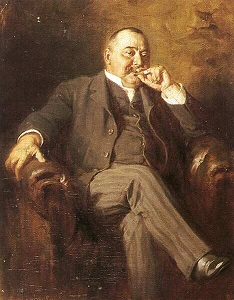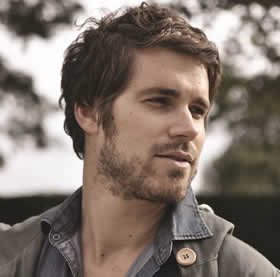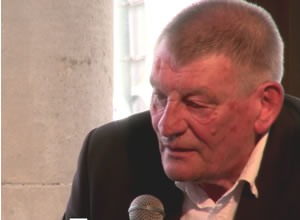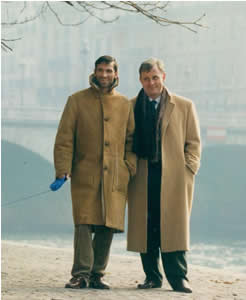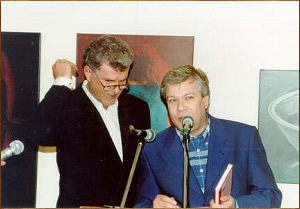Onafhankelijk van geboortedata
De Amerikaanse schrijver Michael Carroll werd geboren in 1965 en groeide op in een wijk van Fort Caroline (nu Jacksonville), Florida. Hij verliet Jacksonville in de vroege jaren ’90 om twee jaar te dienen bij het Peace Corps, eerst in Jemen, toen in de Tsjechische Republiek. Daarna verbleef hij weer een jaar in Jacksonville voordat hij naar Parijs trok om met de schrijver Edmund White, die hij zes maanden eerder op een reis had ontmoet te gaan samen wonen. Een paar jaar later verhuisden ze naar Princeton, New Jersey, daarna naar New York. Nadat ze vanaf 1995 partners waren geweest trouwde het stel in 20013. Carroll debuteerde met de verhalenbundel “Little Reef and Other Stories” in 2014. De bundel werd genomineerd voor de shortlist voor de Lambda Literary Award for Gay Fiction. Zijn korte verhalen zijn ook verschenen in Ontario Review, Boulevard en The New Penguin Book of Gay Short Stories.
Uit: After Memphis (Little Reef and Other Stories)
““My brother Jeff called. I’m not even sure why I answered, seeing on the landline’s display who it was, or at least recognizing the area code and the prefix of the number, though of course I was expecting him to call any day, any week, since I had heard from our mother that he’d broken up with his new girlfriend, after getting cold feet about divorcing his wife Deanne. I had not met the new girlfriend, Terri, now the new ex-girlfriend. Jeff still had a touch of the guilt, I could hear in his voice, but I could also discern a gratifying exasperation with Deanne. She had taken thirty hard years out of Jeff, bankrupted him, and was now daring him to follow through by hiring a second, more aggressive lawyer-whose services he was paying for. To top it off, the case was complicated by the fact that before he could finally be cut loose, my brother first had to settle up with the banks. I didn’t know much else except that he wasn’t expected to pay every cent of debt she’d rung up on the credit cards, just a big chunk of it. No doubt, Deanne’s pride had been hurt, because after all she was the one being left. Oh yes, Jeff said, Deanne was now officially pissed.
“But after the hundred and ten thousand,” he said, “how the fuck could she question it?”
That was new, the f-word. I hadn’t heard that or any other cussing out of Jeff ’5 mouth in thirty years. Of course I sympathized, but I couldn’t let on too strongly, not yet. I’d been highly supportive of their union then the shotgun wedding when we were in high school. But Deanne, really, over time she’d taken the cake. She’d raised and homeschooled three kids, but when you don’t work and your husband’s a firefighter, you really had to rein in the indulgences, and she had been quite indulgent, denying those kids nothing in the way of clothes and gadgets and meals out at Wagon Wheel and TGI Friday’s. I was finishing the cold coffee left in my Grumpy mug from Disneyland Paris and feeling seized upon and getting low on blood sugar as he dived right into all this and told me something none of us had ever known: that he’d always put Deanne in charge of the monthly bill paying. He was still getting to the bottom of how many cards were involved.
“But this,” he said, “I take partial, no, the lion’s share of responsibility for. I was an idiot, so I guess that’s what I get for my willful ignorance. Having to work three jobs to get untangled from responsibilities I take very seriously. I’ll be under the fucking water for a long-ass time.”
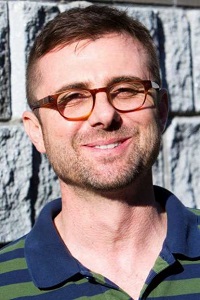
Michael Carroll (Fort Caroline, 1965)
